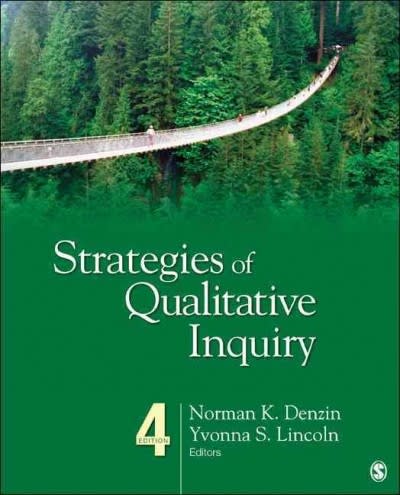Question
I have chosen for this analysis those with a rural or agricultural background, specifically those who live and work in rural areas. Stereotypes: people from
I have chosen for this analysis those with a rural or agricultural background, specifically those who live and work in rural areas. Stereotypes: people from rural areas are often stereotyped as being less educated, less intelligent, and less sophisticated than others in the urban areas. Those who live in the rural less fortunate may be seen as unsophisticated, and uncultured. Prejudice: there is a prevalent prejudice against people from rural areas, which can manifest in several ways, such as being dismissed or overlooked in professional settings, being underestimated due to their lack of urban experience, or being viewed as being too conservative or traditional. Discrimination: people from rural areas may face discrimination in the workplace, as they may be overlooked for promotions or other opportunities due to their lack of urban experience or education. They may also be paid less than their urban counterparts for the same work. Categorization: people from rural areas are often categorized as being part of the working class or lower or middle class and may be viewed as being less important than those in higher socioeconomic brackets. Social norms can perpetuate the ideas that people from rural areas are less sophisticated than those from urban areas. This can lead to discrimination and prejudice against individuals from rural backgrounds. Inequality: The Inequality between rural and urban areas can lead to resentment and prejudice against those who are seen as being less fortunate or less successful. The following are some examples of how attitudes toward people from rural areas may be influenced by situational and social/cultural factors: advertisements that depict people from rural areas in a stereotypical manner, such as wearing overalls or driving pickup trucks, can reinforce negative stereotypes and contribute to prejudice and discrimination. Policies that favor urban over rural areas in terms of funding, resources, or opportunities can lead to resentment and prejudice against people from rural areas. Social media can perpetuate stereotypes and prejudice against people from rural areas by sharing images or posts that depict them in a negative or stereotypical manner. The following are some possible theoretical perspectives that can be used to analyze attitudes toward people from rural areas: Self-perception theory suggests that individuals may form attitudes based on their own self-perceptions and may overestimate the accuracy of their own perceptions. Cognitive dissonance theory suggests that individuals may experience discomfort or dissonance when they hold conflicting attitudes or beliefs and may change their attitudes or seek out information that confirms their existing beliefs.
Feenstra, J. (2020).Social psychology(2nd ed.). Zovio.
Questions?
- Discuss alternative theoretical perspectives or concepts that might apply to the attitude your peer described.
- Identify additional examples of cognitive processes that contribute to judgment.
- Ask questions that encourage your peer to more fully consider the impact of stereotypes, prejudice, and/or discrimination on his/her behavior or the targeted group.
Step by Step Solution
There are 3 Steps involved in it
Step: 1

Get Instant Access to Expert-Tailored Solutions
See step-by-step solutions with expert insights and AI powered tools for academic success
Step: 2

Step: 3

Ace Your Homework with AI
Get the answers you need in no time with our AI-driven, step-by-step assistance
Get Started


